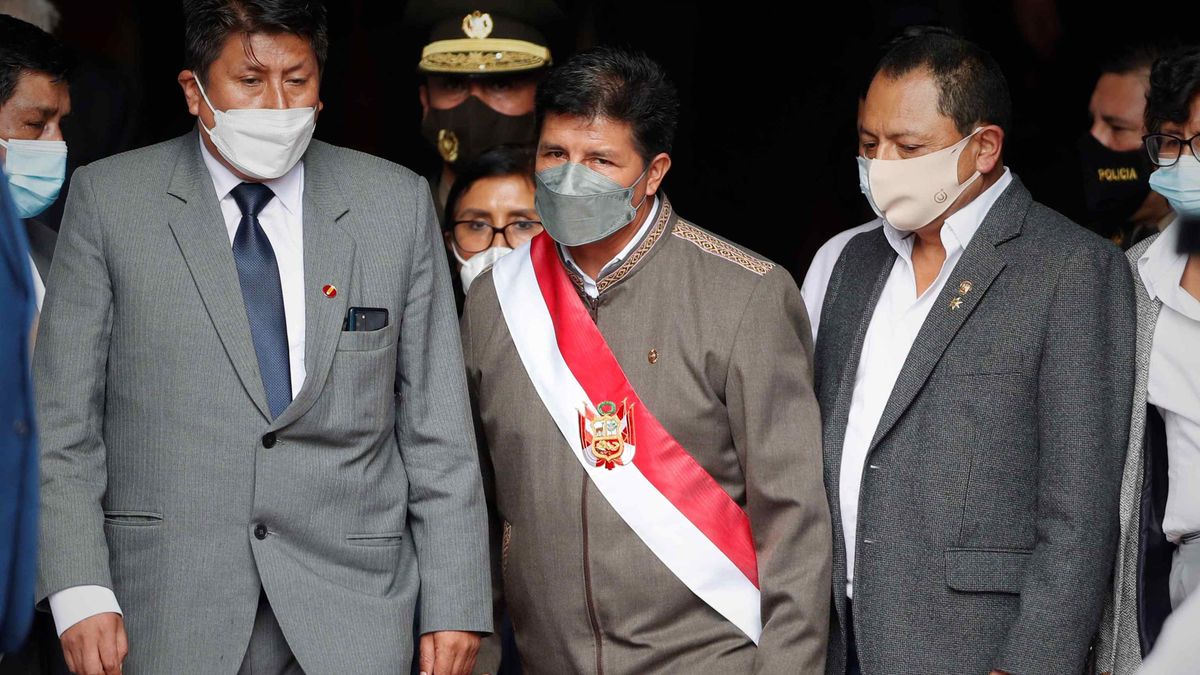The proposal to expel Castillo under the argument of “moral incapacity”, eight months into a five-year term, was supported by 55 votes, far from the necessary 87, in a new defeat for the opposition after a first trial in December.
After a debate of just over five hours, some 54 legislators rejected the impeachment and 19 abstained from voting in the political trial against the president of Peru, a rural teacher and the son of poor peasants who took office in July last year after winning a tight runoff to the right Keiko Fujimori.
“I salute that good sense, responsibility and democracy prevailed,” Pedro Castillo said on Twitter after the vote. “I recognize the parliamentarians who voted against the vacancy, and I respect the decision of those who did. I call everyone to close this page and work together for the great challenges of the country“added the president.
This result was expected, which gives a new breath to the president, whose popularity has fallen amid political uncertainty due to allegations of corruption in his environment and social conflicts that have affected the mining sector in Peru, the world’s second largest copper producer.
Earlier, Castillo went to the fragmented Congress and rejected the opposition’s arguments for his impeachment; and he claimed that the accusations against him were based on media reports without any “corroboration”.
The political trial against Pedro Castillo, who came to power with the Marxist Peru Libre party, had been approved in mid-March with 76 votes in the unicameral Congress.
During the debate in Congress, the polarization that Peru experienced during last year’s elections was staged with demonstrations for and against the impeachment. The police had to put up fences to avoid incidents between the two factions that, during the recount of the ballot votes in 2021, staged serious clashes.
The Inter-American Commission on Human Rights had expressed last week its concern about the “repeated” use of the figure of impeachment against the presidency of Peruwhich has been used six times since 2017, contributing to governance problems, the Reuters agency recalled.
Peru has had five presidents since 2016, including Castillo. In 2018, Peter Paul Kuczynski resigned before a vote that he had lost due to his participation in the corrupt plot of Odebrecht, while Martin Vizcarra he was dismissed in 2020 in a session in parliament.
It was precisely during Kuczynski’s first impeachment attempt that former President Alberto Fujimori received a humanitarian pardon for the sentence he is serving for crimes against humanity, at the end of 2017. At that time, the pardon granted to the right-wing leader was seen as the price that the then president paid to stop his impeachment in a Congress dominated by Fujimorism.
The same day that Pedro Castillo was unharmed in the second attempt to remove him from power, the Constitutional Court, the country’s highest court, ordered the immediate release of Fujimoriwho returned to prison in 2018 by decision of the Supreme Court, after a warning from the Inter-American Court of Human Rights that had requested that his release be reviewed.
The resolution, approved by a majority, restores the humanitarian pardon by giving rise to a habeas corpus filed in 2020 by Gregorio Parco, a lawyer who is not part of the former president’s legal defense group, but who is affiliated with Keiko Fujimori’s Fuerza Popular party. .
Earlier Monday, the Peruvian prosecutor’s office raided the homes of former officials and relatives of President Pedro Castillo, investigated for alleged corruption in the government environment.
The media, pointed out by Castillo as being responsible for spreading false news that Congress used as an argument in his impeachment trial, showed images of police officers entering the properties of those under investigation, in Lima. According to a judicial source, the court order included the arrest of former Secretary of the Government Palace Bruno Pacheco and two nephews of the president.
Support for Pedro Castillo has fallen rapidly due to the scandals and his lack of experience in government (he has four cabinets of ministers). The IEP and CPI firms said that 51% and 53.6%, respectively, agree with the dismissal of the president.
But the image that Peruvians have of their Congress is even worse: more than 76% reject the work of that power.
Source: Ambito
David William is a talented author who has made a name for himself in the world of writing. He is a professional author who writes on a wide range of topics, from general interest to opinion news. David is currently working as a writer at 24 hours worlds where he brings his unique perspective and in-depth research to his articles, making them both informative and engaging.




